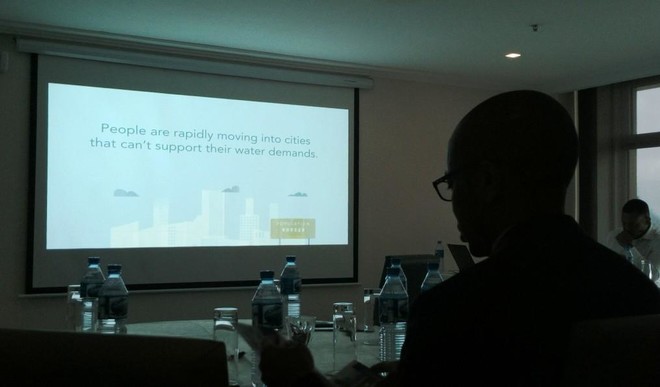
Xylem, an innovative water solutions company, is advocating good use of water, with regards conservation and reuse.
Speaking at a sensitization seminar in Abuja with industry stakeholders, the company’s Channel Manager for sub-Saharan Africa, Rueben Marowa, said, “In Africa, what has come to the fore in the last couple of years, is that water is not an infinite resource.”
He said, “Nigeria is a diverse market and we have noticed within the Nigerian sphere, that there is a dire need for solutions. I think the water sector, for a while, has been lagging behind when I look at other sectors like oil and gas other big sectors.”
With more and more people rapidly moving into cities that can’t support their water demands, Marowa said Nigeria’s lag in the water sector is more from legacy in the sense that water has not received as much publicity and funding. “People think water is a finite resource but it isn’t. One of the things that people need to realize is that water in itself, even for the utility companies is a source of revenue. Historically in Nigeria, there’s been an over reliance on the oil sector. The water challenges that have been inherent in the economy, have never been fully addressed. We offer solutions, the right technology and skills set to address those problems with our end to end solutions approach, from construction to reintroduction into the environment again.
The forum was a platform to interface with and sensitize marketers, utility design experts, decision-makers, consultants and contractors on what technologies are available to them from the company. It also highlighted that as water resources become increasingly stressed due to drought, flooding, population growth, and pollution, to which Xylem’s Business Development Manager, Olukayode Olayemi said, the close linkage between wastewater, rivers, lakes, and groundwater are becoming even more important.
He added that, “Our use and reuse of water has become a critical water quality and supply issues, one frequently challenged by the presence of recalcitrant trace organic compounds.”

 Join Daily Trust WhatsApp Community For Quick Access To News and Happenings Around You.
Join Daily Trust WhatsApp Community For Quick Access To News and Happenings Around You.


